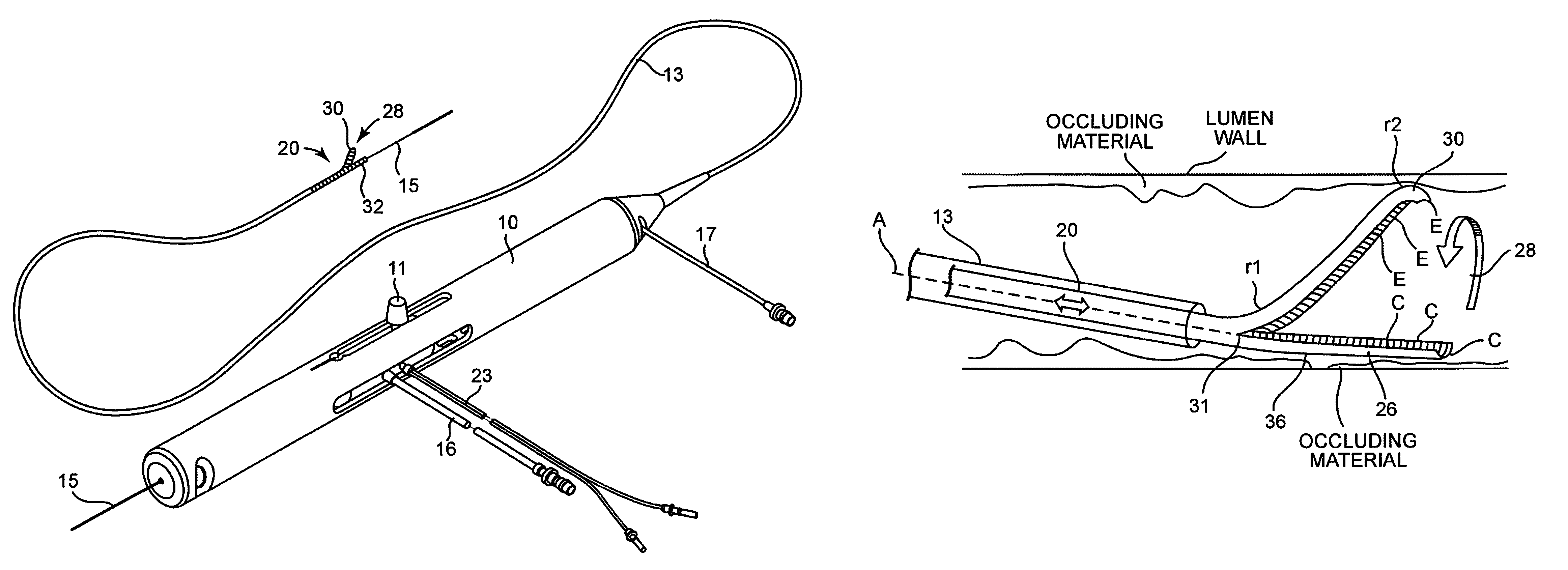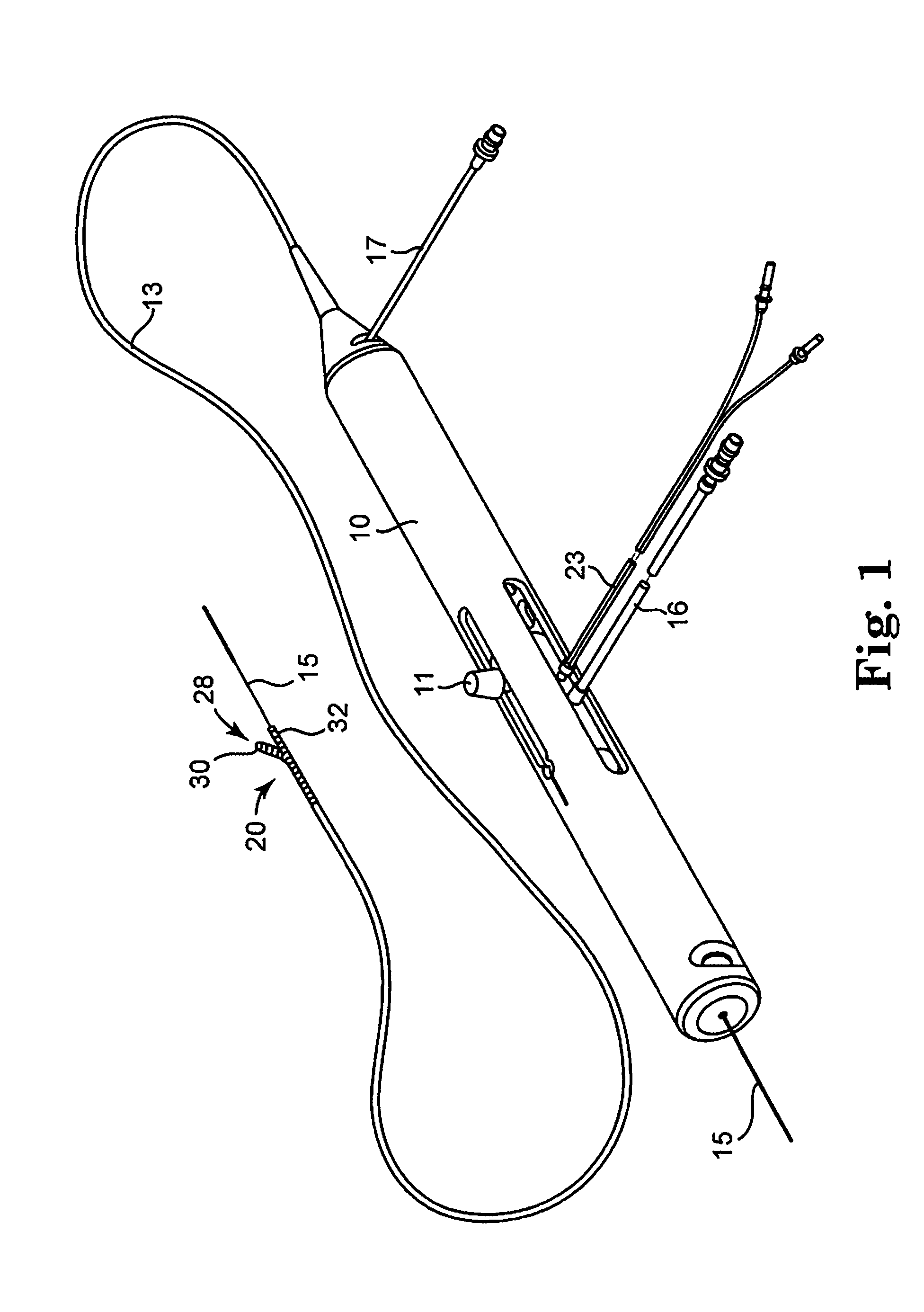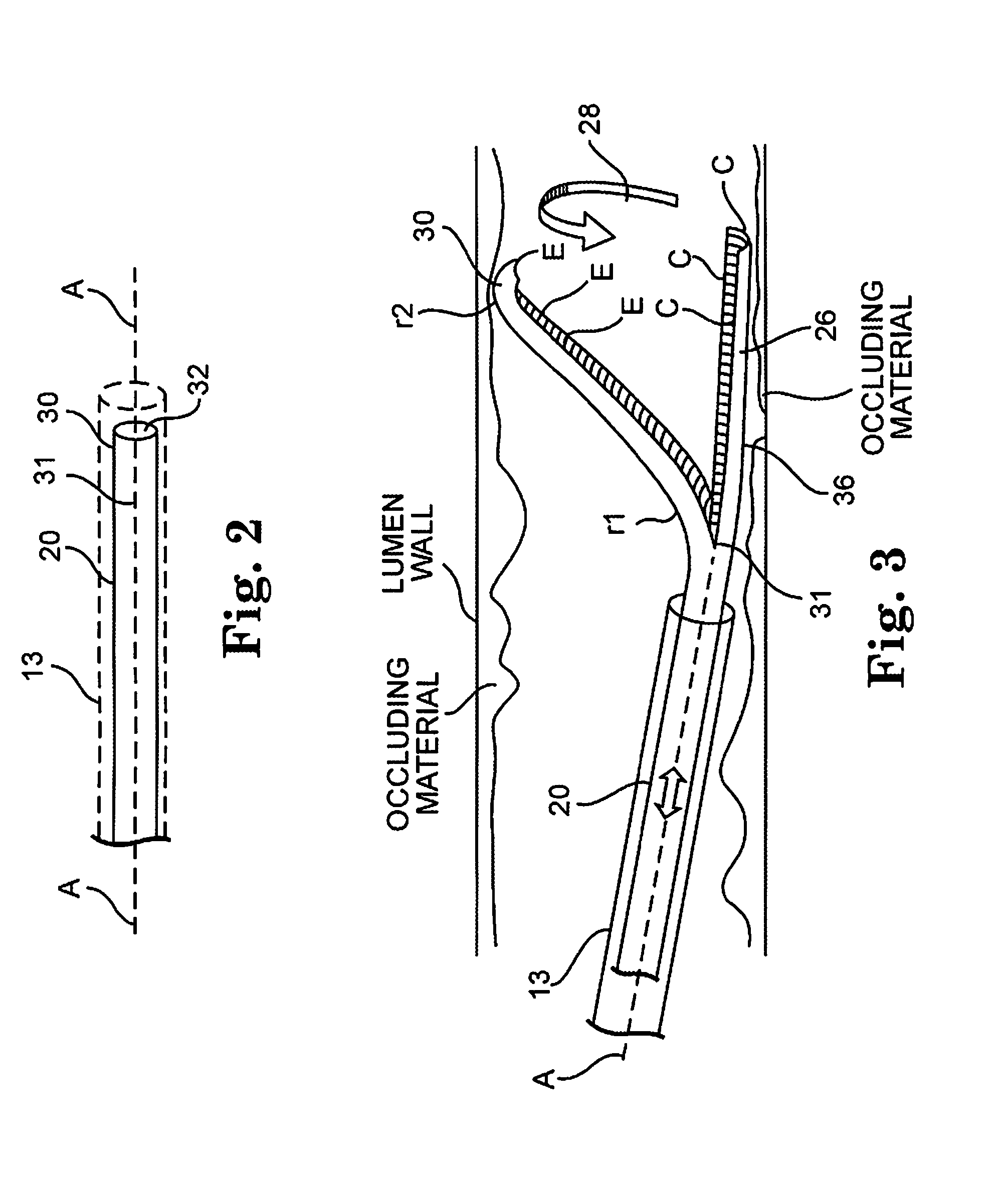Split flexible tube biasing and directional atherectomy device and method
a flexible tube and stent technology, applied in the field of devices and methods, can solve the problems of stent restnosis, block blood flow, angina, hypertension,
- Summary
- Abstract
- Description
- Claims
- Application Information
AI Technical Summary
Benefits of technology
Problems solved by technology
Method used
Image
Examples
Embodiment Construction
[0034]While the invention is amenable to various modifications and alternative forms, specifics thereof are shown by way of example in the drawings and described in detail herein. It should be understood, however, that the intention is not to limit the invention to the particular embodiments described. On the contrary, the intention is to cover all modifications, equivalents, and alternatives falling within the spirit and scope of the invention.
[0035]FIG. 1 illustrates one embodiment of a rotational atherectomy system and device of the present invention. The system includes a handle portion 10, an elongated, flexible catheter tube 20 having an ablating element 28 which further comprises a biasing element 30 and a cutting element 32, the biasing element 30 and the cutting element 32 resulting from, in the illustrated embodiment, a splitting of the flexible catheter tube 20 at its distal end. Flexible catheter tube 20 comprises a lumen with which guide wire 15 may be in operative comm...
PUM
 Login to View More
Login to View More Abstract
Description
Claims
Application Information
 Login to View More
Login to View More - R&D
- Intellectual Property
- Life Sciences
- Materials
- Tech Scout
- Unparalleled Data Quality
- Higher Quality Content
- 60% Fewer Hallucinations
Browse by: Latest US Patents, China's latest patents, Technical Efficacy Thesaurus, Application Domain, Technology Topic, Popular Technical Reports.
© 2025 PatSnap. All rights reserved.Legal|Privacy policy|Modern Slavery Act Transparency Statement|Sitemap|About US| Contact US: help@patsnap.com



